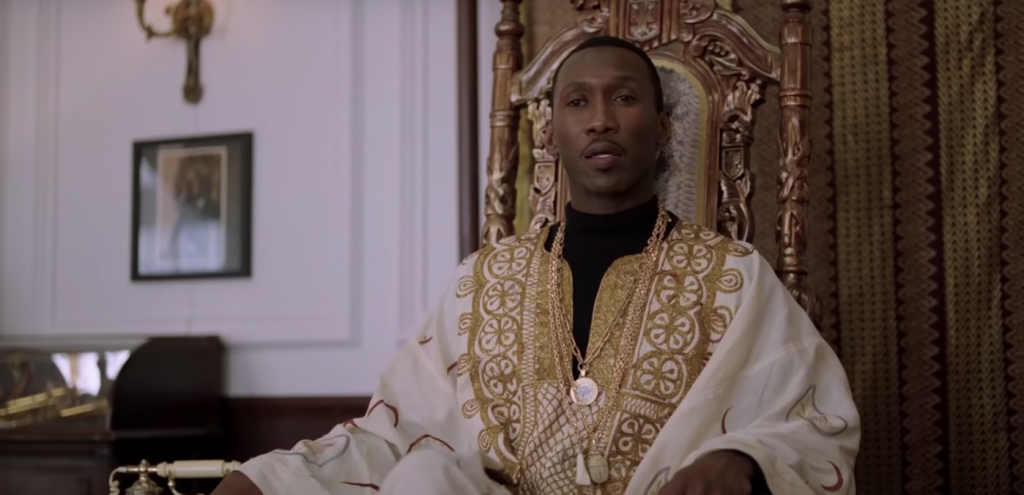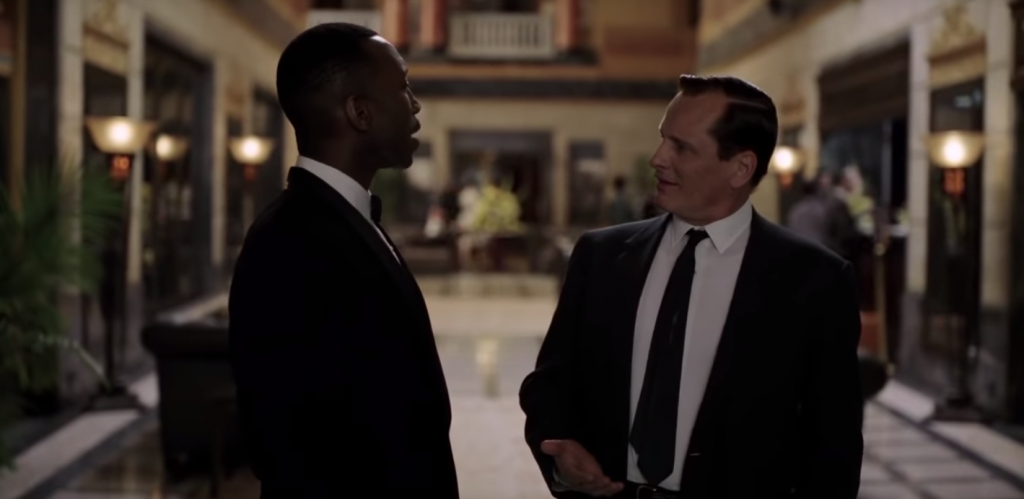Green Book is a dramedy based on the real-life friendship between the most unusual of friends. Donald Shirley (Mahershala Ali), of The Don Shirley Trio, and “Tony Lip” Vallelonga (Viggo Mortensen), a bouncer from the Copa, embark on a concert tour through the South with Vallelonga as Shirley’s driver. The name of the film is taken from the pamphlet that was published during the 1960s that informed black people of establishments that were safe for them to stay in, eat at, or stop at while traveling. That was a foreign concept to me, as well as Vallelonga in the movie, as the only time Green Book is explained is when he is made aware that there will be times the two can’t stay at the same hotels and he is provided with the book.
This journey is meant to be just that- two individuals who are vastly different are choose to travel together across the country for very different motives. Shirley chooses Tony because he knows he will provide protection. Tony, a man who at the beginning of the film throws glasses used by black men in the trash, accepts the job because it pays well. I would be interested to know how the friendship developed in real time because it seems hard for me to believe it made such a quick turnaround. However, putting reality aside, the film centers on the strides Vallelonga makes in overcoming that racism. The undercurrent is the isolation that Shirley feels as a black man who doesn’t fit in with race: he’s too elite for the black community, and he’s too black for the white community. But they find some comfort in each other.
There are some great moments in this film, but there are also moments that miss the mark. There is one scene where they break down on the side of the road next to a field of black workers. The sight of a white man serving a black man stops everyone and the scene is just still. I found myself with tears in my eyes during this scene. There were also other scenes where the fear, the isolation, the hate felt real and I think if director Peter Farrelly (Dumb and Dumber) would have allowed just a bit more stillness, a bit more time for these things to sink in, the movie would have packed a bigger punch. There are jokes and moments that resonate, but there are also jokes that feel like you are laughing at the expense of the racism it’s trying to distance itself from.
I don’t think the film was trying to make jokes out of racism or the situations that occur, but I think with you have white directors and writers, it’s naturally going to be a white-washed perspective and subsequently, a watered down and uncomfortable product in some places. I really liked this film and I liked the relationship between the characters. I thought it was charming and although some parts missed the mark, I think it’s important to feel uncomfortable and address that- talk about it- and keep learning, especially in today’s environment. If these two men could overcome this in 1962 during Jim Crow, we certainly can make some progress. Perhaps it starts with the film.


